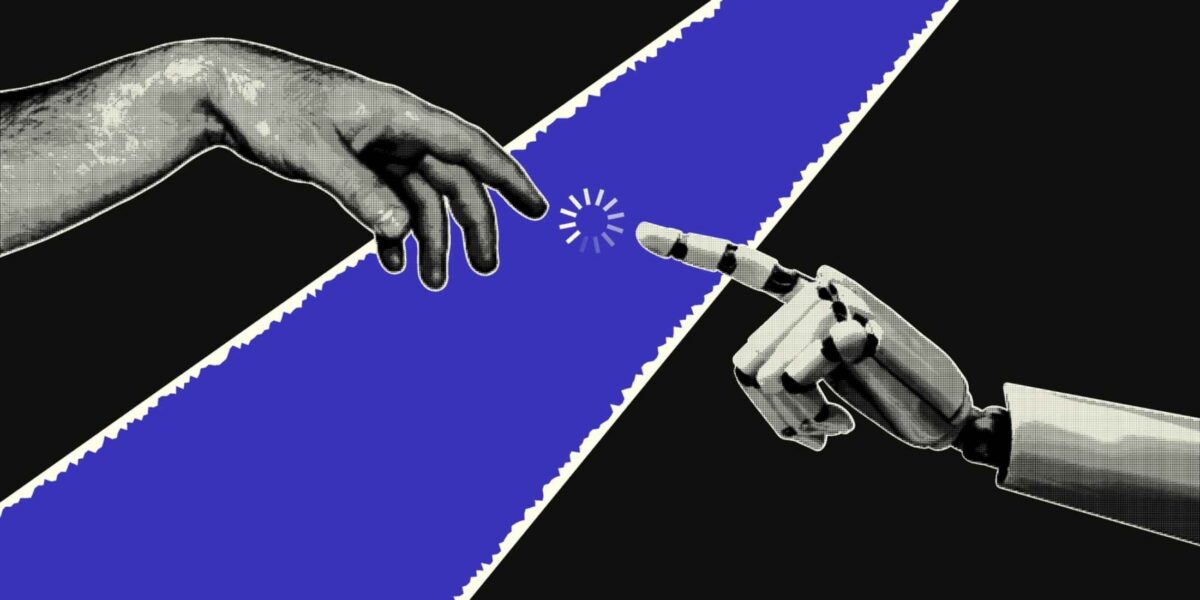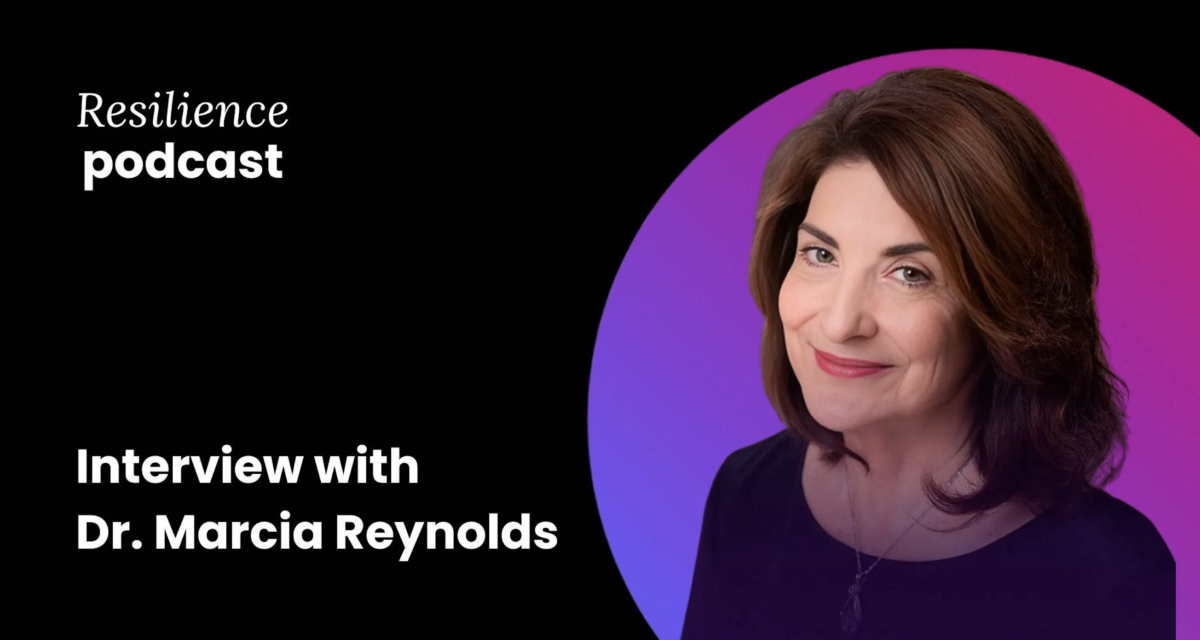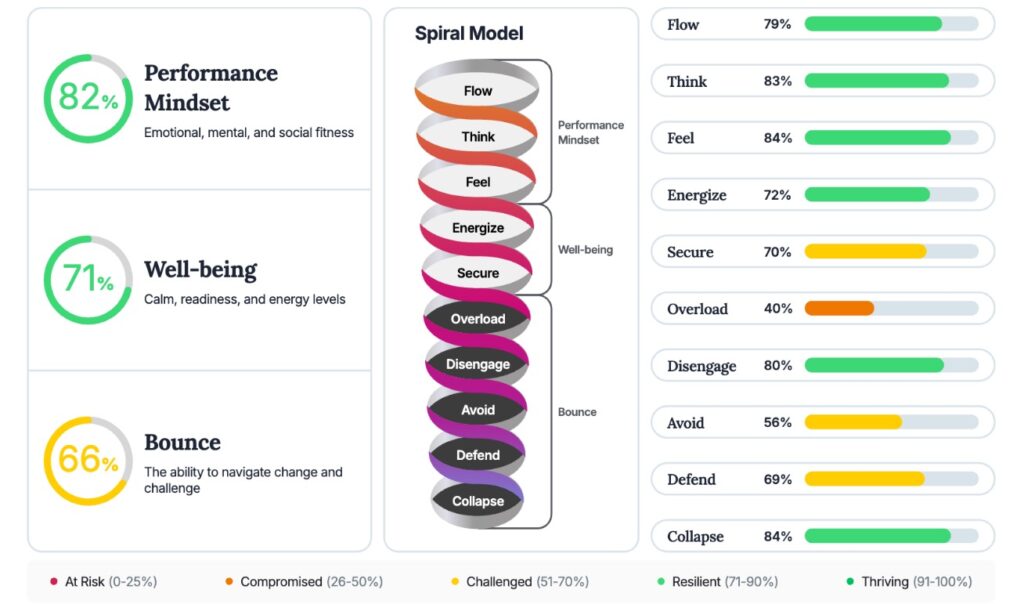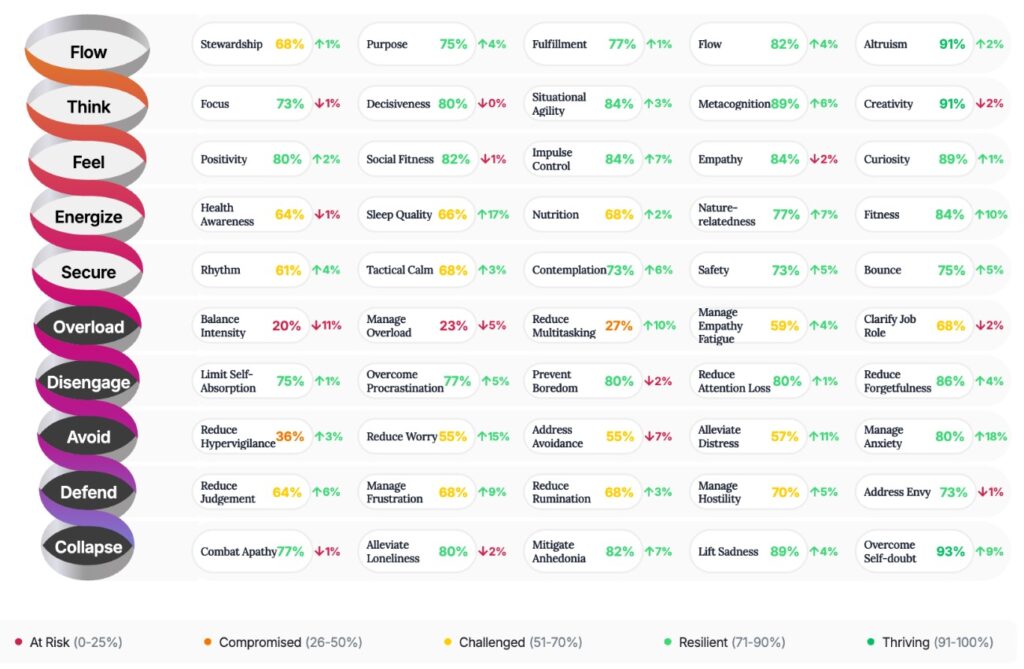Leaders are under pressure to perform, adapt, and inspire—often all at once. Coaches and HR professionals who support them need tools that go beyond conversation. They need insights that are measurable, evidence-based, and relevant to the realities of leadership today.
Whether you’re working with senior executives, cross-functional teams, or emerging leaders, the right coaching tool helps you guide meaningful change. From strengthening resilience and reducing burnout to improving collaboration and communication, these tools bring clarity to complexity.
This guide reviews five of the most trusted and effective coaching assessments used by executive coaches, leadership consultants, and HR leaders worldwide.
Resilience Assessment (Resilience Institute)
Keywords: resilience coaching tool, leadership resilience assessment, team performance diagnostics
The Resilience Assessment is a scientifically validated tool used to measure 50 key factors across 10 levels of the Resilience Spiral—including focus, adaptability, empathy, recovery, and burnout risk. It provides clear, actionable insights into performance, mental health risk, leadership readiness, and team dynamics.
Now powered by Resilience.AI, the platform offers individualized recommendations for areas like sleep, vitality, and emotional regulation. Reports are available for both individuals and groups, with benchmarking and trend tracking for repeat use.
Certified professionals gain access to a structured framework, preferred pricing, and best practices for using the tool in coaching engagements.
Special offer: Coaches can measure their own resilience free of charge until May 31st. Take the assessment and experience the insights first-hand.
Claim your free assessment
- Individual and group dashboards
- Burnout and risk indicators
- Benchmarking and AI recommendations
- $60 per user | $40 for certified professionals
- Certification program available
Explore the Resilience Assessment
Why this tool can benefit executive coaches and HR leaders:
It provides a measurable, holistic view of personal and team resilience—ideal for coaching that aims to enhance well-being, decision-making, and sustainable performance.
Hello Driven (CReC Resilience Tools)
Keywords: AI-powered resilience platform, workplace well-being tools, coaching with data
Hello Driven is a digital platform designed for tracking and building resilience over time. It uses AI-supported dashboards and micro-coaching to help users develop awareness and adaptability. Coaches and facilitators can become certified through their CReC (Certified Resilience Coach) program.
- AI-guided coaching prompts
- 12-month subscription included with certification
- Group and trend tracking features
- ~$3,900 for CReC certification
Learn more about Hello Driven
Why this tool can benefit executive coaches and HR leaders:
A good option for organizations seeking continuous digital engagement with employees and scalable resilience programs.
CliftonStrengths (Gallup StrengthsFinder)
Keywords: leadership strengths assessment, Gallup coaching tool, strengths-based development
CliftonStrengths identifies an individual’s top 5 or 34 strengths from a list of themes like Achiever, Strategic, or Relator. Widely used in corporate coaching and leadership development, it’s a foundational tool for aligning roles with natural talents and fostering engagement.
- Popular in executive development and team coaching
- Strengths-based framework rooted in Gallup research
- Easy to integrate into corporate learning
- $24.99 (Top 5) | $59.99 (Full 34)
Explore CliftonStrengths
Why this tool can benefit executive coaches and HR leaders:
Helps leaders build confidence, deepen self-awareness, and align teams around complementary talents in a positive, scalable way.
DISC Personality Profile
Keywords: workplace behavior tool, team dynamics coaching, DISC for communication
DISC is a behavior-based assessment that categorizes individuals into Dominance, Influence, Steadiness, and Conscientiousness. It’s often used to improve communication and resolve team conflict, especially in leadership and cross-functional teams.
- Fast to administer and easy to interpret
- Widely used in HR, team workshops, and onboarding
- Actionable for improving collaboration
- $30–$75 per user (varies by provider)
Explore DISC
Why this tool can benefit executive coaches and HR leaders:
Gives teams and leaders a shared language to discuss behavior, which can be essential for building trust, improving collaboration, and leading with awareness.
MBTI (Myers-Briggs Type Indicator)
Keywords: executive personality profile, MBTI coaching, leadership style assessment
MBTI is a globally recognized tool for understanding personality preferences, categorizing individuals into 16 types. It’s often used in leadership coaching, communication training, and change management.
While it has its limitations in scientific robustness, it remains one of the most familiar tools in corporate settings—particularly valuable for introducing personality frameworks and fostering team dialogue.
- Commonly used in large organizations
- Helps leaders understand different work and communication styles
- Often integrated into talent development programs
- $50–$100+ per assessment (administered by certified practitioners)
Learn about MBTI
Why this tool can benefit executive coaches and HR leaders:
Familiar and accessible—ideal for clients who need a basic framework for understanding themselves and their teams, especially in cross-cultural or high-stakes environments.
Final Thoughts: Choosing the Right Coaching Tool for High-Impact Leadership
Whether you’re coaching executives, supporting teams, or designing organizational development programs, the right tool helps turn insight into action.
Tools like the Resilience Assessment and Hello Driven bring measurable clarity to performance, mental health, and burnout prevention—critical areas in modern leadership. Others like CliftonStrengths, DISC, and MBTI offer frameworks for communication, collaboration, and personal growth.
The best coaching tools don’t just inform—they empower. Choose one that aligns with your coaching goals, client needs, and organizational context.
Want to bring measurable resilience into your leadership programs?
Use the Resilience Assessment
Become a Certified Resilience Coach












